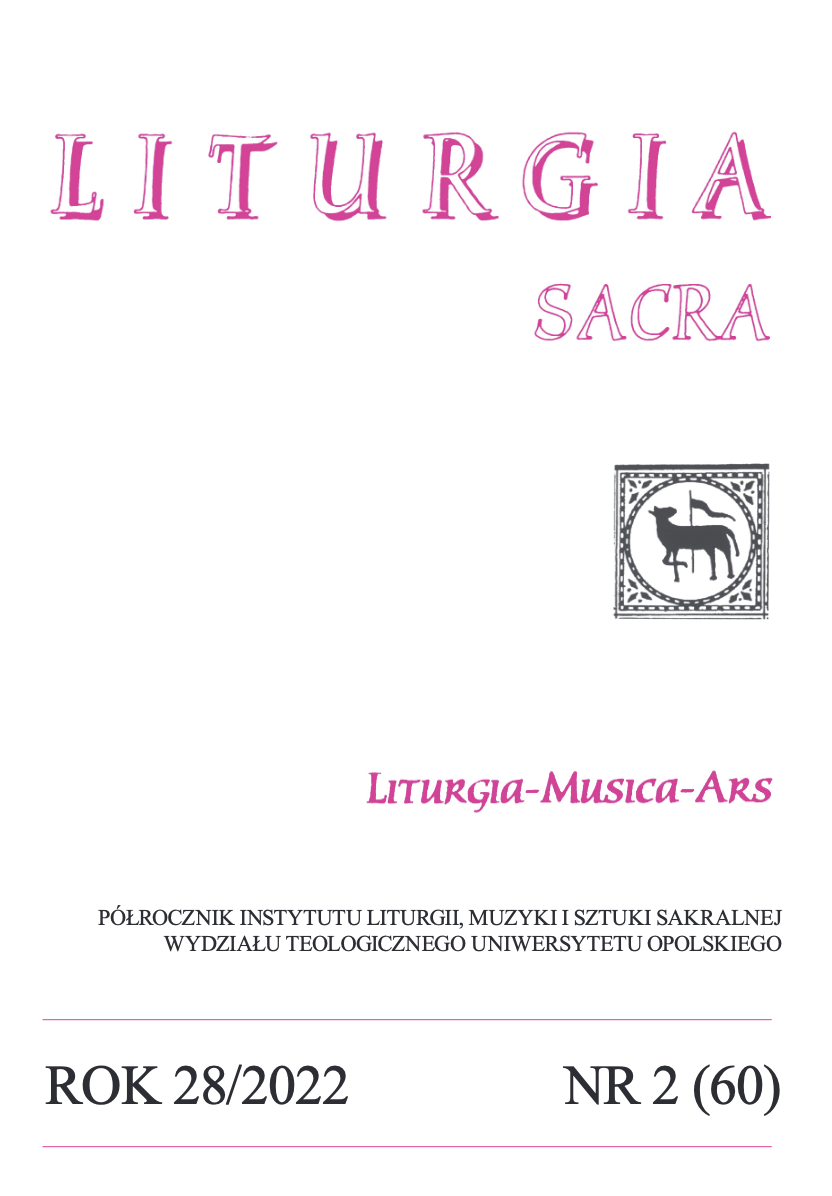Posługi świeckich w liturgii słowa we Mszy św. na przestrzeni wieków
Ministry of the Laity in the Liturgy of the Word Through the Centuries
Author(s): Waldemar PałęckiSubject(s): History of Church(es), Pastoral Theology, Sociology of Religion
Published by: Uniwersytet Opolski
Keywords: Lector; Cantor; Ministry; Liturgy of the Word; Holy Mass;
Summary/Abstract: By its nature, the celebration of the liturgy requires the involvement of many persons. In its con- stitution on the holy liturgy the Second Vatican Council stated that, “In liturgical celebrations each person, minister or layman, who has an office to perform, should do all of, but only, those parts which pertain to his office by the nature of the rite and the principles of liturgy” (SC 28). From the perspective of many years since the promulgation of the conciliar constitution, this en- couragement is still valid; all the more so, as for many centuries the liturgy was clericalized and the lay faithful had become simply an audience. Pope Paul VI drew attention again to service during the Liturgy of the Word in his moto proprio, Ministeria Quaedam, and Pope Francis, especially, in his moto proprio Spiritus Domini, including women in this ministry. The goal of this article is to show the significance and role of persons serving during the Liturgy of the Word at Mass from the point of view of the history of the liturgy. Beginning with St. Justin, through the Fathers of the Church, and the directives of Councils and Synods, the place of lec- tors and psalmists performing their ministry during Mass is presented. It is noted that for the first three centuries [of the Church], those serving as lectors were primarily lay persons. It was only until Pope Siricius that the lectorate became one of the steps to receiving major orders. In this manner the fulfilling of this function became clericalized. Cantors in the East[ern Church] were also included in the clerical state quite early on. The clericalization of these functions was sealed by the custom of designating lectors and psalmists under the form of holy orders. This state of affairs was changed only after the Second Vatican Council.
Journal: Liturgia Sacra
- Issue Year: XXVIII/2022
- Issue No: 60
- Page Range: 29-54
- Page Count: 26
- Language: Polish

